Best AI tools for< Redline Agreements >
5 - AI tool Sites
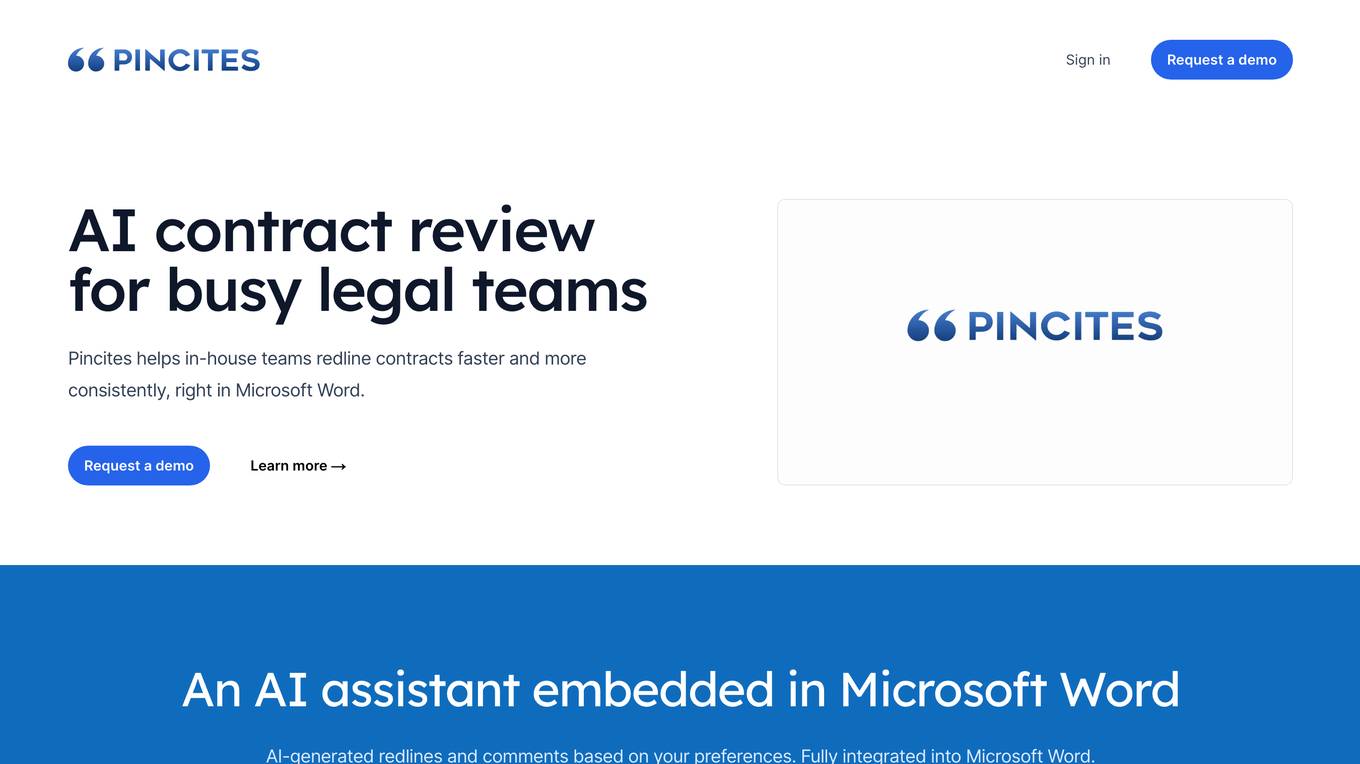
Pincites
Pincites is an AI contract review tool designed for busy legal teams to streamline the contract review process. It offers automated redlining, suggestions, and trend analysis within Microsoft Word, helping legal professionals negotiate contracts faster and more efficiently. Pincites leverages AI to provide real-time feedback, learn user preferences, and identify patterns in contracts to enhance negotiation strategies.
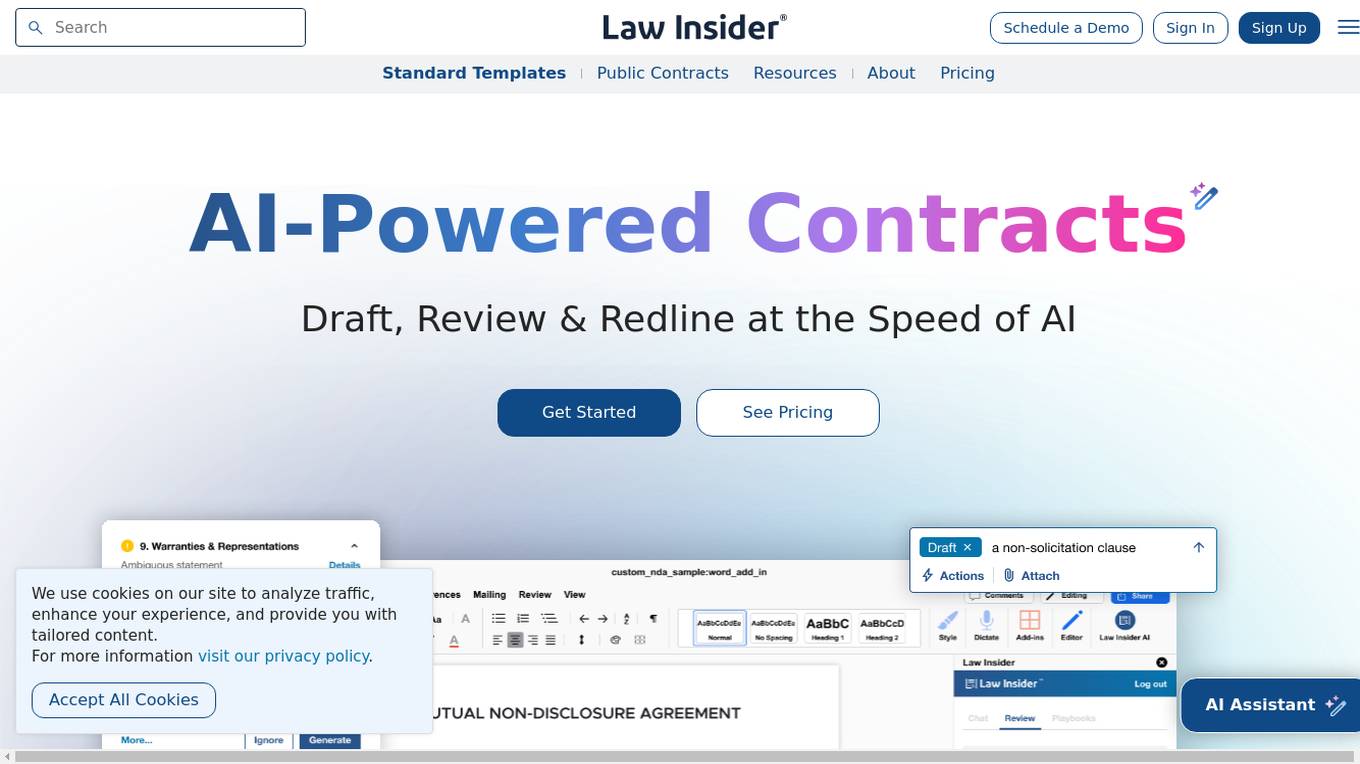
Law Insider
Law Insider is an AI-powered platform that offers contract drafting, review, and redlining services at the speed of AI. With over 10,000 customers worldwide, Law Insider provides standard templates, public contracts, and resources for legal professionals. Users can search for sample contracts and clauses using the Law Insider database or generate original drafts with the help of their AI Assistant. The platform also allows users to review and redline contracts directly in Microsoft Word, ensuring compliance with industry standards and expert playbooks. Law Insider's features include AI-powered contract review and redlining, benchmarking against the Law Insider Index, playbook builder, and upcoming AI clause drafting with trusted validation. Users can access the world's largest public contract database and watch tutorial videos to better understand the platform's capabilities.
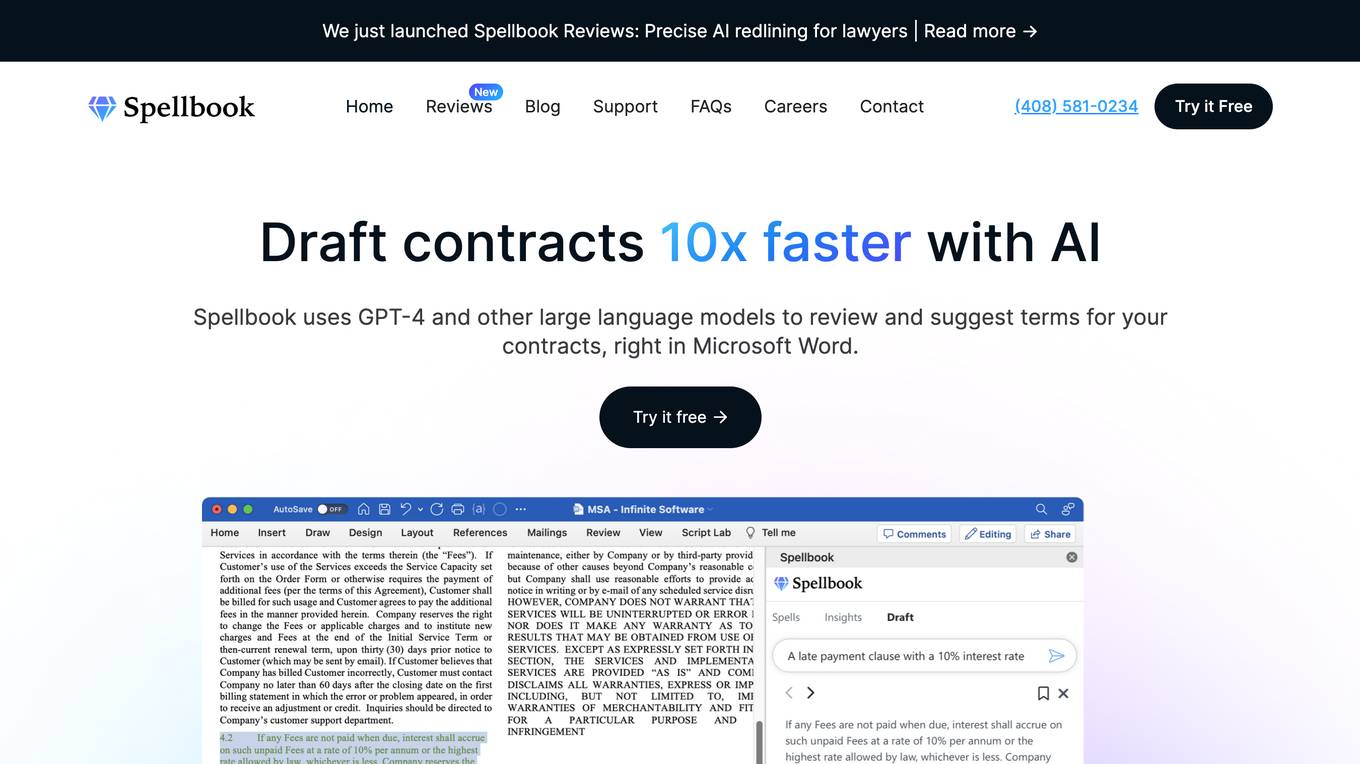
Spellbook
Spellbook is a comprehensive AI tool designed for commercial lawyers to review, draft, and manage legal contracts efficiently. It offers features such as redline contract review, drafting from scratch or saved libraries, quick answers to complex questions, comparing contracts to industry standards, and multi-document workflows. Spellbook is powered by OpenAI's GPT-4o and other large language models, providing accurate and reliable performance. It ensures data privacy with Zero Data Retention agreements, making it a secure and private solution for law firms and in-house legal teams worldwide.
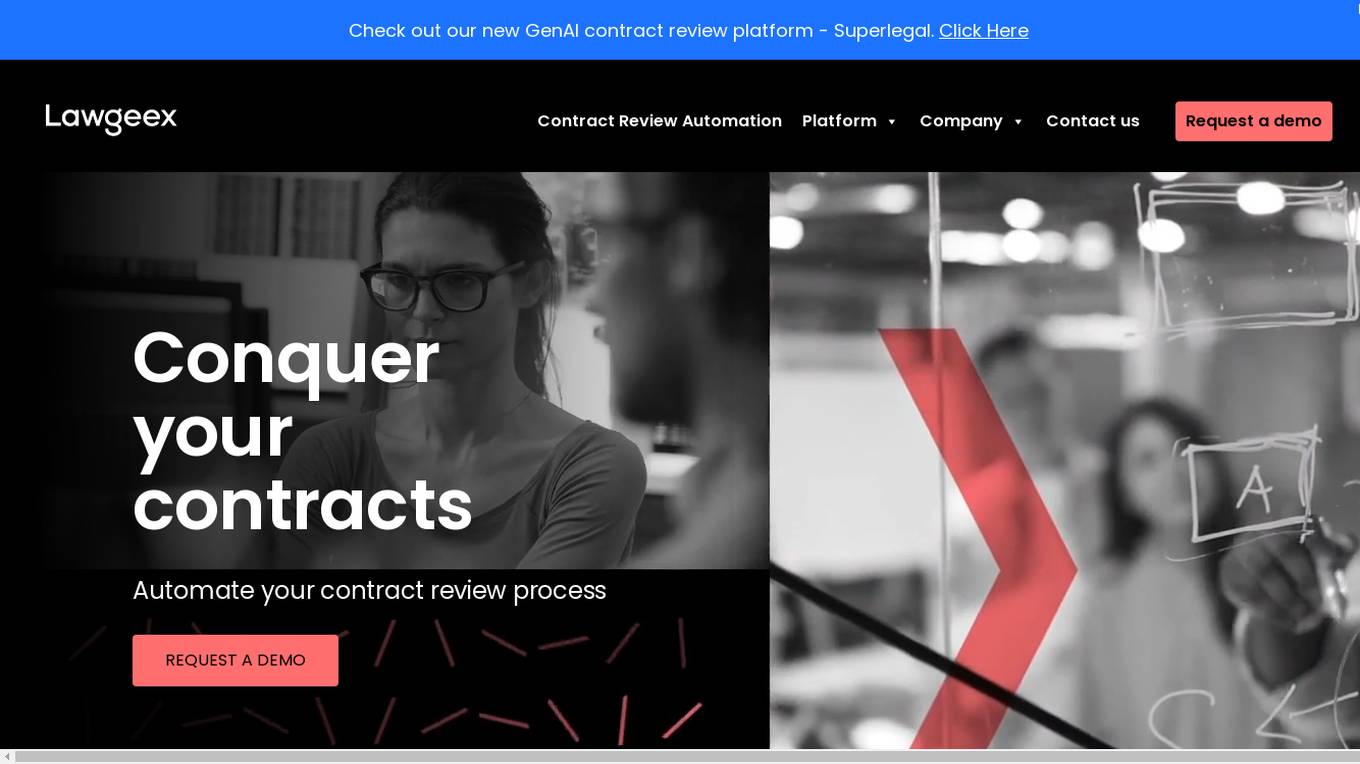
Lawgeex
Lawgeex is a contract review automation platform that uses artificial intelligence (AI) to review and redline legal documents based on your predefined policies. Unlike other solutions that only flag unacceptable or missing clauses, Lawgeex understands the contractual context as well as your position. Our technology makes redlines to the contract and negotiates with the counterparty – just like an experienced attorney, but with enhanced speed and accuracy.
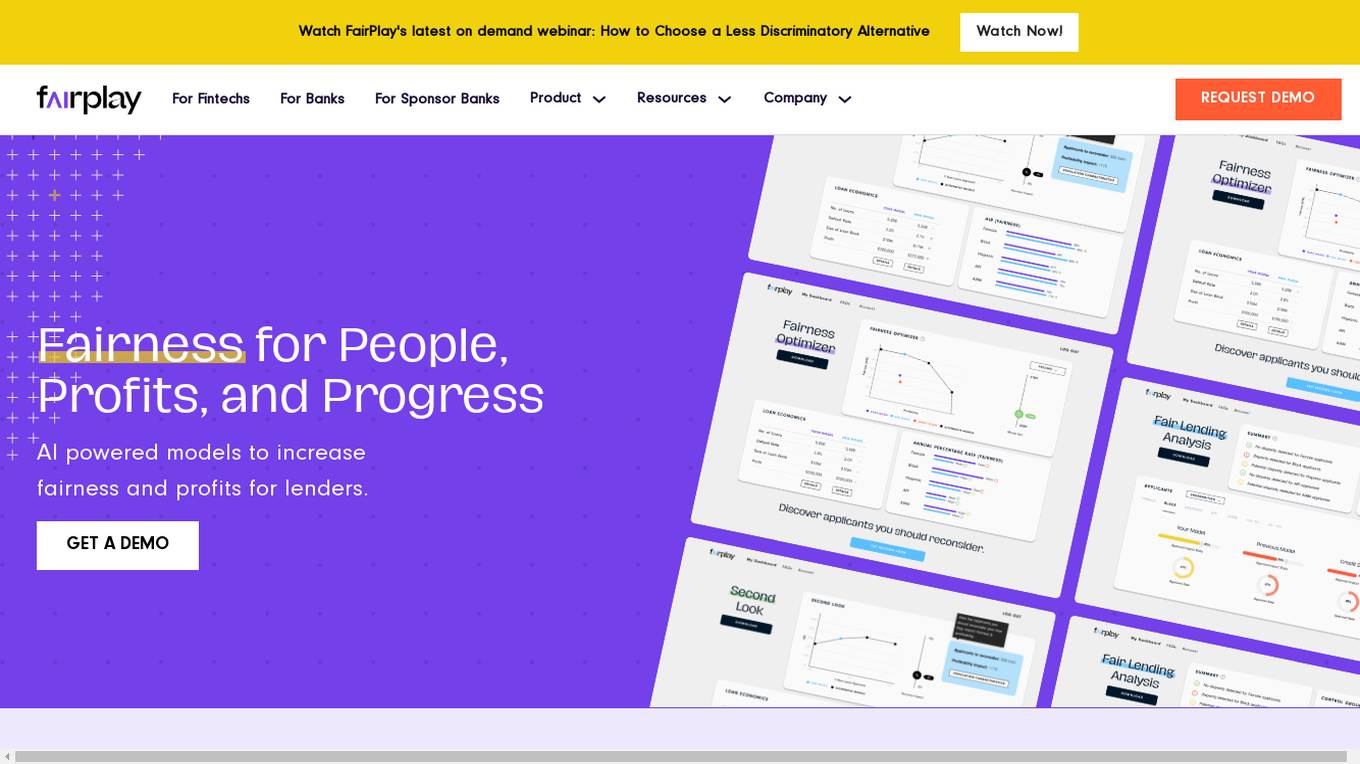
FairPlay
FairPlay is a Fairness-as-a-Service solution designed for financial institutions, offering AI-powered tools to assess automated decisioning models quickly. It helps in increasing fairness and profits by optimizing marketing, underwriting, and pricing strategies. The application provides features such as Fairness Optimizer, Second Look, Customer Composition, Redline Status, and Proxy Detection. FairPlay enables users to identify and overcome tradeoffs between performance and disparity, assess geographic fairness, de-bias proxies for protected classes, and tune models to reduce disparities without increasing risk. It offers advantages like increased compliance, speed, and readiness through automation, higher approval rates with no increase in risk, and rigorous Fair Lending analysis for sponsor banks and regulators. However, some disadvantages include the need for data integration, potential bias in AI algorithms, and the requirement for technical expertise to interpret results.